The Healing Power of Soy’s Isoflavones
2018-06-20
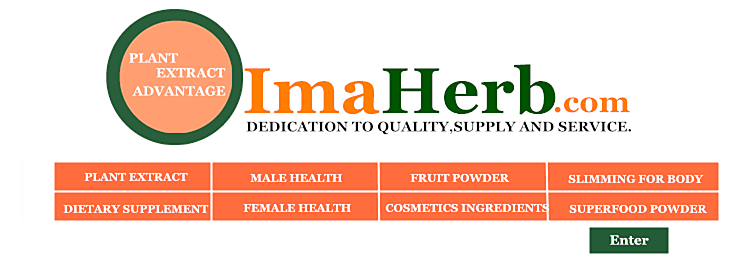
What are Soya Isoflavones?
Isoflavones are a group of naturally-occurring chemicals that mimic the overall shape of oestrogen in the body. In many ways they can be thought of as plant-based oestrogen alternatives. It is for this reason that they are sometimes known as “phytoeostrogens” by scientists – with “phyto” meaning “plant”. When consumed, many experts believe that by binding to oestrogen receptors in the body, they perform a similar role to standard oestrogen.
Isoflavones are found in a range of different plants, including red clover and black cohosh, both of which have been used as traditional remedies for generations. Possibly the most popular plant-based source of these, however, is soya.
It has long been noted that individuals in the East, where soya and soya-based foods like tofu are common dietary constituents, tend to suffer fewer menopause symptoms. Further investigations have revealed the exceptionally high level of isoflavones found in soya. These days, such is the popularity of soya isoflavones, it is no longer necessary to eat large volumes of soya. Instead, the same benefits can be experienced from specially-made supplements, where simply swallowing a couple of capsules provides a generous volume of isoflavones.
Isoflavones show tremendous potential to fight disease on several fronts. They have been shown to help prevent the buildup of arterial plaque, which reduces the risk of coronary heart disease and stroke. Isoflavones may help reduce breast cancer by blocking the cancer-causing effects of human estrogen. They may also prevent prostate cancer by hindering cell growth. Isoflavones can fight osteoporosis by stimulating bone formation and inhibiting bone resorption. They may even relieve some menopausal symptoms as well.
Soy isoflavones have antioxidant properties which protect the cardiovascular system from oxidation of LDL (the bad) cholesterol. Oxidized LDL cholesterol accumulates in the arteries as patches of fatty buildup which blocks the flow of blood, resulting in atherosclerosis. Genistein inhibits the growth of cells that form this artery clogging plaque. Arteries damaged by atherosclerosis usually form blood clots. This can lead to a heart attack if the clot goes to the heart, or a stroke if it goes to the brain.
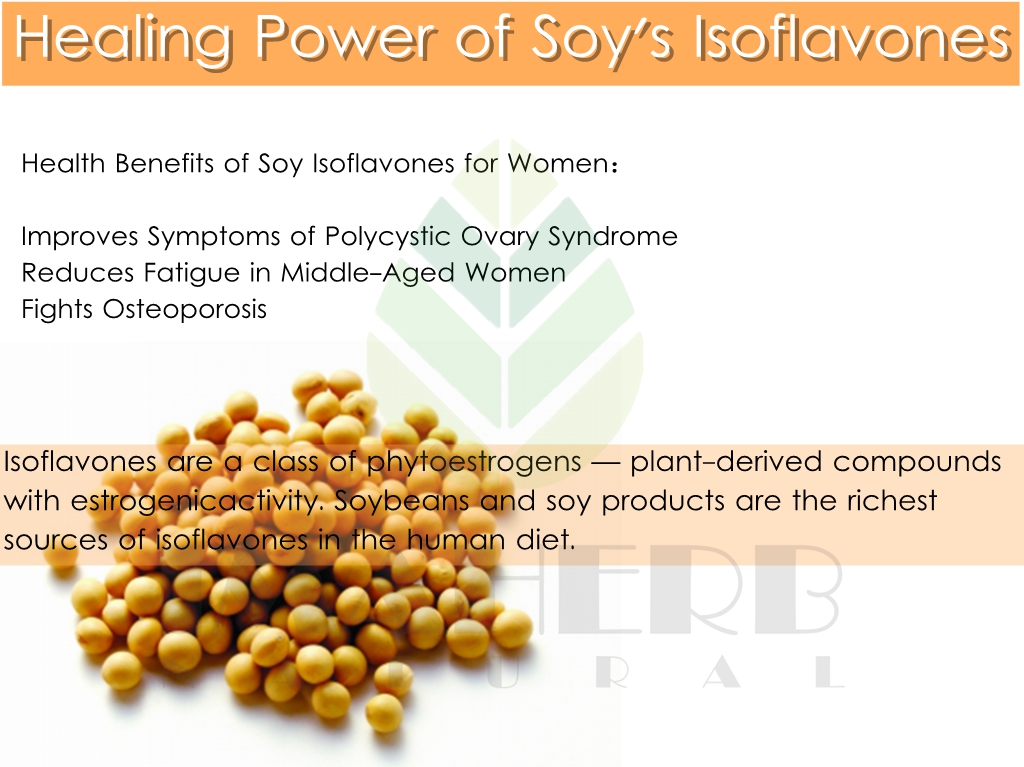
What Are the Health Benefits of Soy Isoflavones for Women?
Improves Symptoms of Polycystic Ovary Syndrome
Women with polycystic ovary syndrome (PCOS) have a hormonal imbalance that causes a host of distressing symptoms, including weight gain, insulin resistance, thinning hair and irregular periods. Treating PCOS is a specialized process that addresses individual concerns, such as medication to control blood sugar. Dietary changes, like limiting carbohydrate intake, tend to improve PCOS symptoms as well.
Reduces Fatigue in Middle-Aged Women
Fatigue is a major complaint of women going through menopause, and soy may help combat this symptom. Supplementing soy lecithin, a fat that has health benefits, greatly improved energy and vigor in women ages 40 to 60. Lecithin is found in various animal and plant foods, including egg yolks, and is essential to health. The results of the study were published in the January 2018 issue of the Nutrition Journal.
Fights Osteoporosis
Once you reach the age of 50, a decline in estrogen significantly increase your risk of bone loss. In fact, 1 in 3 women over 50 will experience a fracture related to bone loss. Increasing calcium, and vitamin D, along with following an exercise program, are ways to strengthen bones and help protect against bone loss.
Because soy soflavones exert weak estrogenic activity, research published the Journal of Bone and Mineral Research in 2017 suggests that it may help protect against bone loss. In one study, adding soy protein to the diet of menopausal women reduced markers of bone turnover, which refers to whole body balance of bone mass.
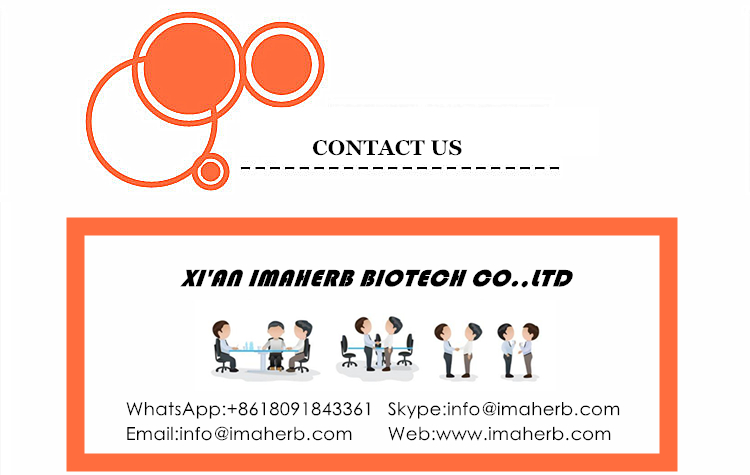






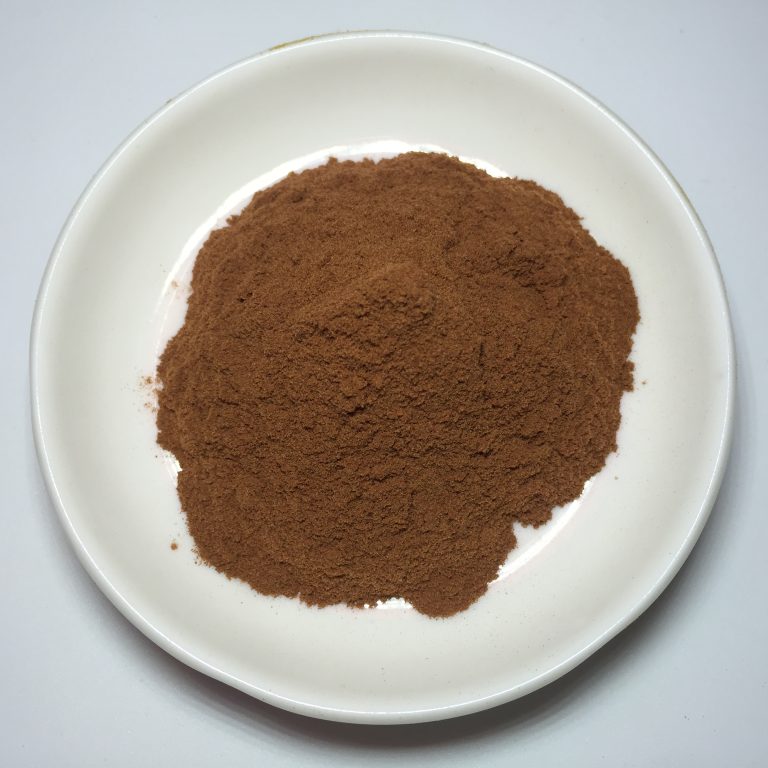 Imaherb China manufacturer supply Apple Extract Powder
Imaherb China manufacturer supply Apple Extract Powder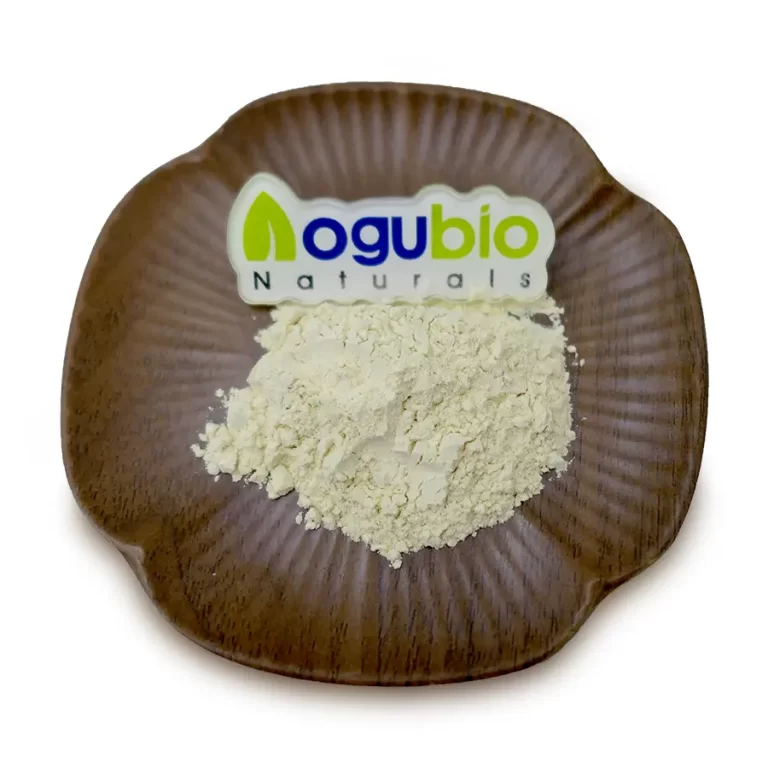 Imaherb China manufacturer supply Apigenin Powder 98%
Imaherb China manufacturer supply Apigenin Powder 98%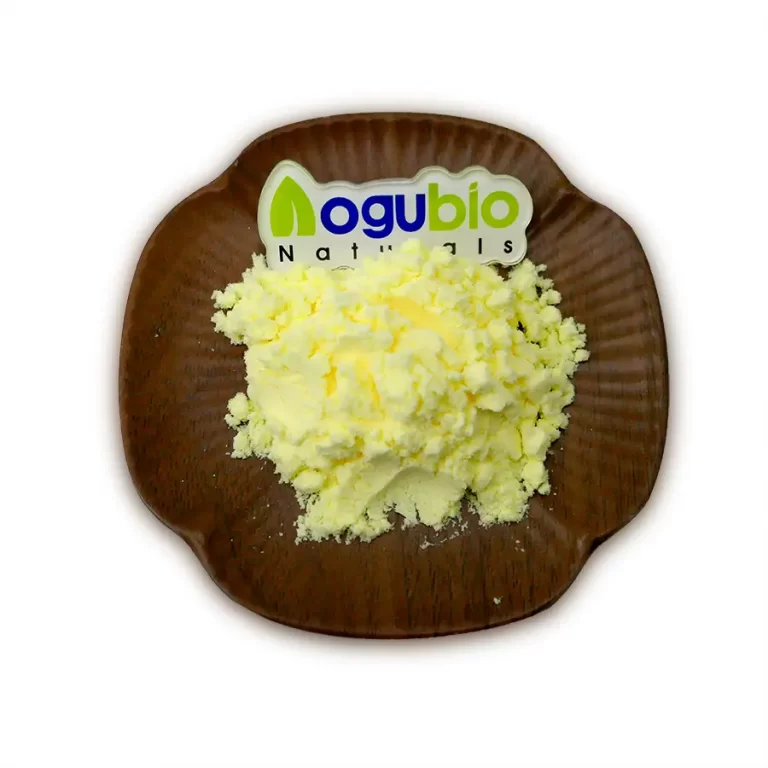 Imaherb Factory supply Alpha Lipoic Acid Powder CAS 1077-28-7
Imaherb Factory supply Alpha Lipoic Acid Powder CAS 1077-28-7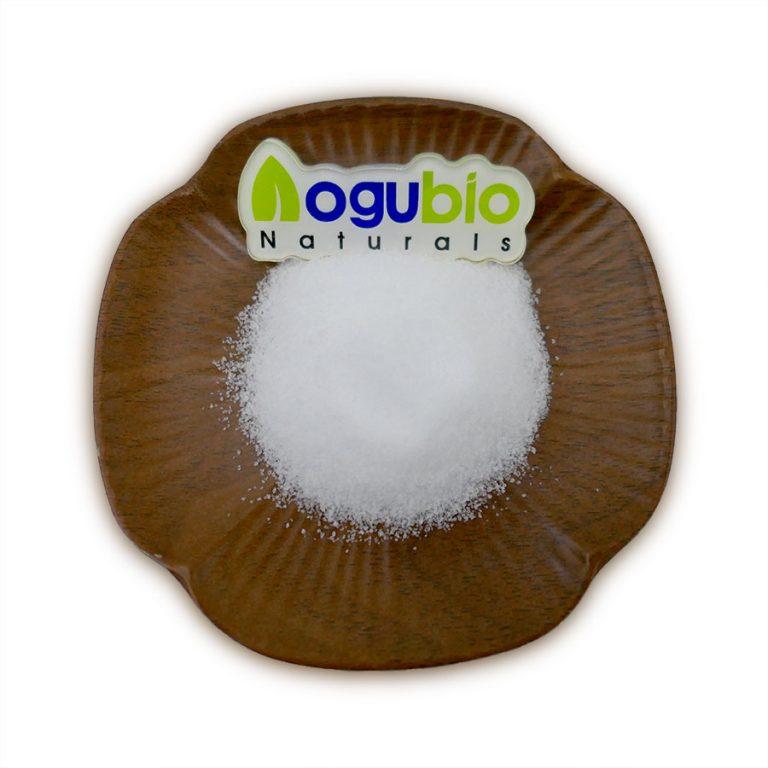 Imaherb Factory supply Alpha GPC Powder CAS 28319-77-9
Imaherb Factory supply Alpha GPC Powder CAS 28319-77-9 Imaherb Factory supply Alliin Powder 98% CAS 556-27-4
Imaherb Factory supply Alliin Powder 98% CAS 556-27-4 skype
skype Sales Manager
Sales Manager Rebekah
Rebekah Rachel
Rachel Miranda
Miranda Camilla
Camilla
 Sales Manager
Sales Manager